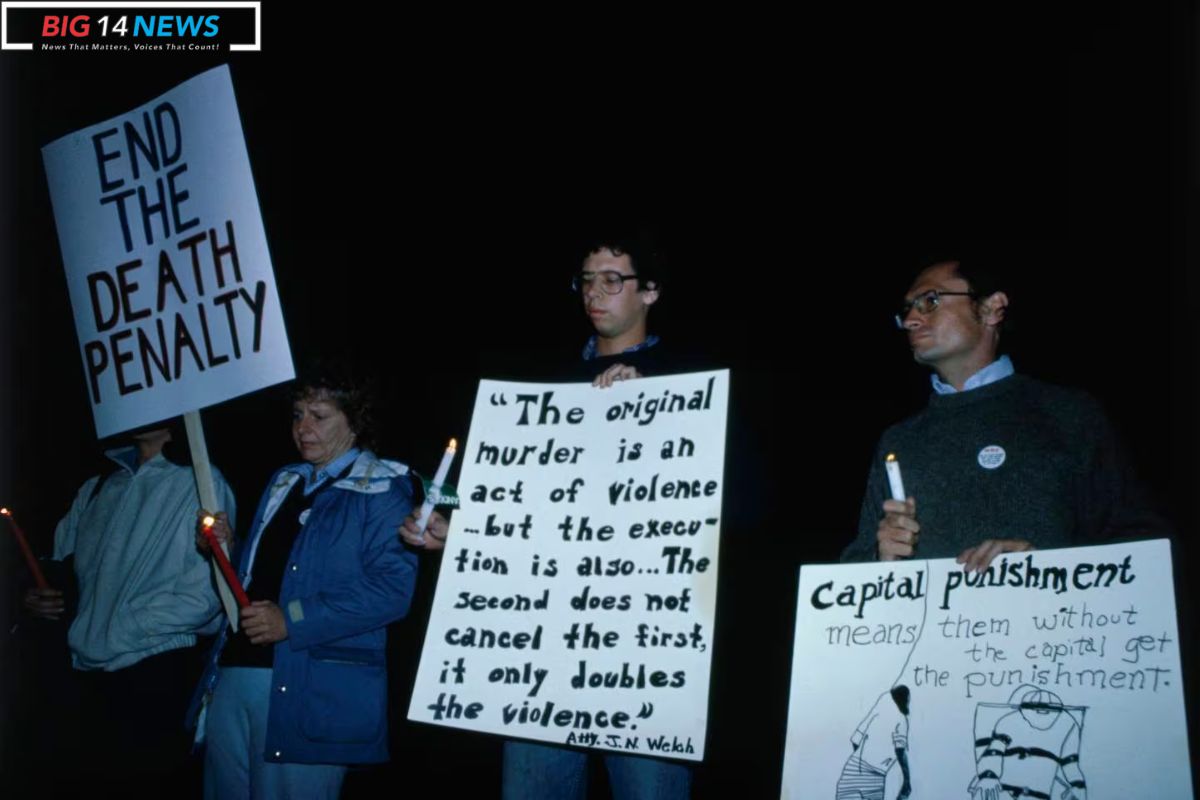UN Experts Warn Against Nitrogen Gas Execution: In light of recent developments surrounding execution methods, concerns have been raised by U.N. experts regarding the use of nitrogen gas.
the human rights implications and legal complexities surrounding this controversial method, focusing on the case of Smith’s pending appeal.
With little precedent and considerable skepticism, the debate surrounding nitrogen gas execution continues to grow.
Additionally, legislative proposals, such as Nebraska State Sen. Loren Lippincott have further fueled the controversy.
The execution protocol’s intricacies and legal challenges are also examined in this comprehensive analysis.
Key Takeaways
- U.N. experts express concerns about nitrogen gas execution
- Lack of scientific evidence on the humane nature of nitrogen gas execution
- Potential for prolonged suffering and violation of human rights standards
- Urgency to explore alternative methods and careful consideration of nitrogen gas execution
UN Experts’ Concerns: Human Rights and Execution Method
Why do United Nations experts express concerns about the use of nitrogen gas as a method of execution?
United Nations experts, including Morris Tidball-Binz, Alice Jill Edwards, Tlaeng Mofokeng, and Margaret Satterthwaite, have raised serious concerns about Alabama’s plan to execute death row inmate Kenneth Eugene Smith using nitrogen gas. These experts specialize in health, executions, punishment, and judicial issues, and their reservations stem from the potential for a ‘painful and humiliating death.’
One of their main concerns is the lack of scientific evidence regarding the use of nitrogen gas as a humane method of execution. They argue that the use of nitrogen gas may cause prolonged suffering and violate the prohibition against cruel, inhuman, or degrading treatment or punishment.
Additionally, the experts question whether adequate safeguards and protocols are in place to ensure a painless and dignified execution. In light of these concerns, they urge Alabama to reconsider its decision and explore alternative methods that are more consistent with human rights standards.

READ MORE: UN Expresses Alarm Over Alabama Nitrogen Hypoxia Execution
Legal Background: Smith’s Conviction and Pending Appeal
Following his 1988 conviction for the murder-for-hire plot of Elizabeth Sennett, Kenneth Eugene Smith’s case is currently in the Middle District of Alabama, where his appeal is pending, in light of the 11-1 vote that determined his death sentence and the ongoing legal proceedings surrounding his execution.
The legal background of Smith’s case is crucial in understanding the complexities and uncertainties surrounding his conviction and potential execution. Here are three key points to consider:
- Conviction: Smith was convicted in 1988 for his involvement in a murder-for-hire plot. The nature of this crime has played a significant role in the severity of his sentence.
- Death Sentence: The jury’s 11-1 vote in favor of the death penalty highlights the contentiousness of Smith’s case. The one dissenting vote raises questions about the fairness and reliability of the sentencing outcome.
- Pending Appeal: Smith’s case is currently under appeal in the Middle District of Alabama. The ongoing legal proceedings aim to review the validity of his conviction and the appropriateness of his death sentence, adding further complexity to the situation.
Debate on Nitrogen Gas: Uncharted Territory and Skepticism
The use of nitrogen gas in executions has sparked a debate due to its uncharted territory and the skepticism surrounding its humane nature. This method, which has never been employed on a human before, raises concerns among experts and organizations.
Even the American Veterinary Medical Association discourages the use of nitrogen gas in euthanizing animals, further adding to the skepticism surrounding its use in executions. The lack of scientific data and research on the effects of nitrogen gas on the human body is a major point of contention.
Experts question whether this method can guarantee a painless and humane death, given the potential for complications or errors. As the debate continues, it becomes clear that the use of nitrogen gas in executions is uncharted territory that requires careful consideration and examination.

Legislative Development: Nebraska’s Proposal Adds to Controversy
Nebraska’s proposal to use nitrogen gas for executions has intensified the controversy surrounding the method. As State Sen. Loren Lippincott suggests implementing ‘nitrogen hypoxia’ as an alternative to lethal injection, the debate over the effectiveness and morality of this technique has reached a new level. Here are three key points that contribute to the controversy:
- Lack of scientific research: Critics argue that there is insufficient scientific evidence to support the use of nitrogen gas for executions. The limited research available raises concerns about the potential for botched executions and prolonged suffering.
- Ethical implications: The use of nitrogen gas raises ethical questions about the humaneness of the method. Some argue that the lack of visible distress during the process does not guarantee a painless death, while others question whether any method of execution can truly be considered humane.
- International opposition: The United Nations has warned against the use of nitrogen gas for executions, emphasizing the importance of upholding human rights and abolishing the death penalty. This opposition adds to the global discourse surrounding the ethics of capital punishment.
Nebraska’s proposal not only highlights the ongoing controversy surrounding nitrogen gas executions but also underscores the need for a thorough examination of the ethical and scientific implications of alternative methods.

Execution Protocol: Details and Legal Challenges
Nebraska’s proposal to use nitrogen gas for executions has sparked intense debate and legal challenges surrounding the execution protocol and its implications. The use of nitrogen gas as a method of execution involves a specific protocol that has raised concerns from various parties. One such concern is the use of a gas mask, which is provided to the condemned individual to ensure the initial provision of breathable air. However, upon the execution order, the breathable air is replaced with pure nitrogen, leading to death by oxygen deprivation. This execution protocol has faced legal challenges, including a lawsuit filed by Pastor Jeff Hood, who argues that it interferes with his duties as a spiritual adviser. It remains to be seen how these legal challenges will impact the scheduled execution date of Kenneth Eugene Smith on January 25. The broader ethical and procedural debates surrounding the use of nitrogen gas in executions continue to be a topic of discussion.
| Execution Protocol Details | Legal Challenges |
|---|---|
| Use of a gas mask | Lawsuit by Pastor Jeff Hood |
| Provision of breathable air | |
| Replacement with pure nitrogen | |
| Death by oxygen deprivation |
Conclusion Of UN Experts Warn Against Nitrogen Gas Execution
The use of nitrogen gas as an execution method raises serious human rights concerns according to UN experts.
The legal background surrounding the conviction of Smith and the pending appeal further complicates the debate.
With limited knowledge and skepticism surrounding nitrogen gas, its implementation as a means of execution remains controversial.
The proposal in Nebraska to use this method adds to the ongoing legislative development and legal challenges.

